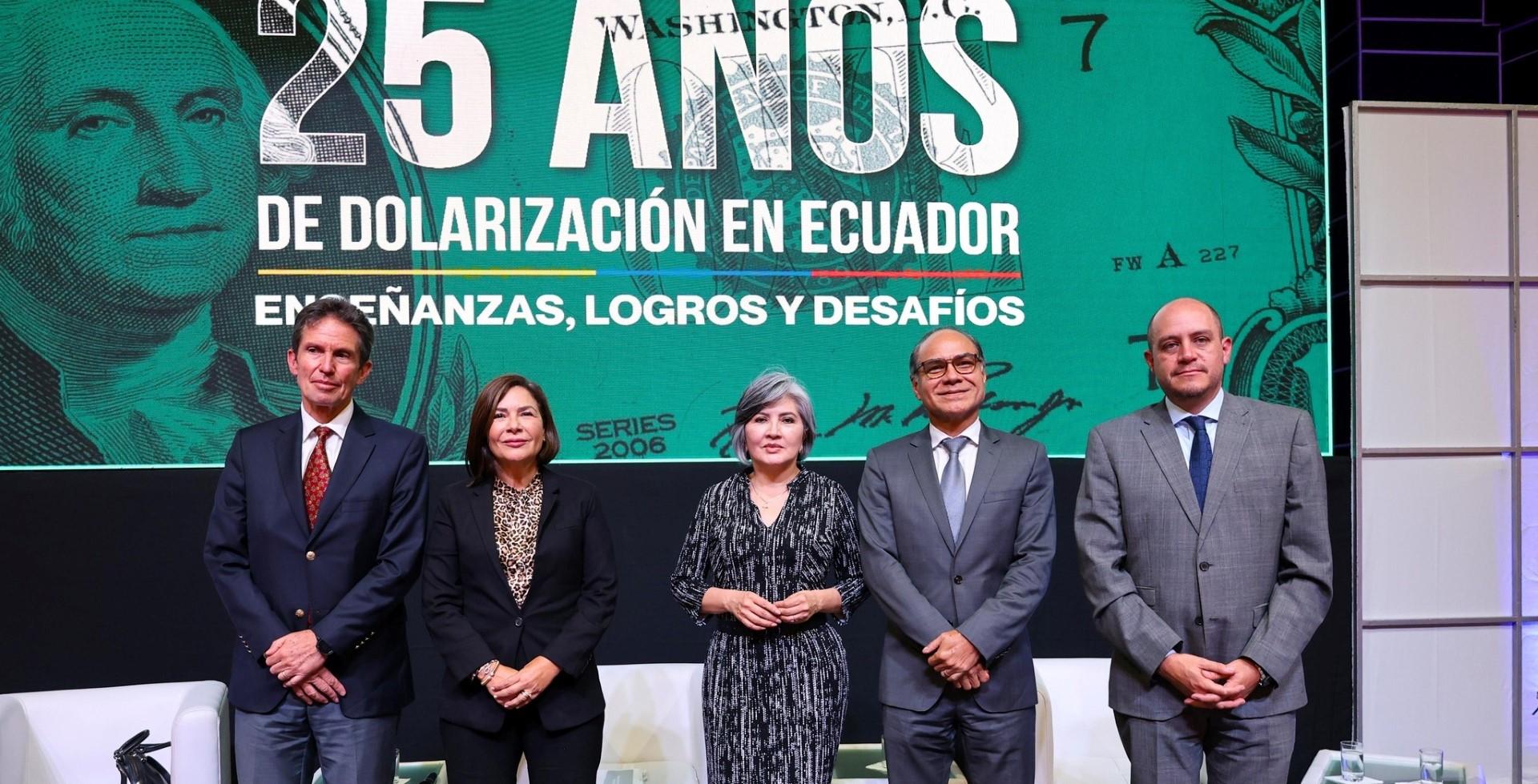Vicente Wong: 'Sustainability is key for a business to be competitive'
2025-01-14Quito, Ecuador.- Vicente Wong Naranjo was part of the panel “Competitiveness, Economic Growth and Employment”, in the framework of the event “25 Years of Dollarization: Lessons, Achievements and Challenges”, organized by the Central Bank of Ecuador. Nathalie Cely, executive president of Fingreen Ecuador; Julio José Prado, director of the Industrial Partnerships Office at IDE Business School; and Ignacio Bustamante, executive president of Novopan, also participated in the event.
During the meeting, the panelists analyzed the different opportunities that dollarization has brought to the country. Vicente Wong pointed out that this monetary measure has played an important role for the competitiveness of the agroexport sector, although it is not everything: there is a fundamental factor which is sustainability.
“In our case, we have a sustainability model, which has three pillars: economic, social and environmental. We have integrated this model into our chain,” he said.
In the economic field, Wong pointed out that Reybanpac has gone from selling goods to providing value-added services to its customers. He also highlighted the diversification of markets and integration to be in all parts of the chain in order to exercise better control over costs. All this has enabled the company to be more efficient and competitive in the market.
At the same time, he pointed out the effort and permanent investment of the business group in technology and infrastructure to make up for the deficiencies existing in the rural areas of the country.
In the social area, Wong emphasized the investment in human talent through education and health in the most needy rural areas:
“We have built a dual technical educational model to have trained people according to our needs. In this way, we can achieve the efficiency, quality and productivity that we are looking for. Graduates of this program have a 77% employability rate not only in our companies, but also in the different areas where we operate,” explained Vicente Wong, referring to the AGROFUTURO program developed through the Wong Foundation.
Regarding health, Wong stated that a healthy and happy worker is a worker who does his or her job well. “That is why we have invested in our medical clinics, to be connected with the IESS, to give them medicines and the necessary supplies so that they do not abandon their jobs,” he said.
On the environmental front, he highlighted the use of technology to reduce the consumption of water used for irrigation in the plantations. “In addition, we use drones to minimize the use of agrochemicals and avoid affecting personnel or surrounding populations. We work with microorganisms to improve the health of the soil, which is at the same time one of the largest carbon emission capturers.”
In order to strengthen the competitiveness of the agro-export sector, Wong called for improved connectivity in rural areas of Ecuador, more trade agreements to compete on equal terms with other countries, better coordination with the public sector to eliminate informality and strengthen security.
“I am sure that with faith, vision, hard work and good alignment with the public sector, we will be able to significantly improve the competitiveness of our export sector”, he concluded.
